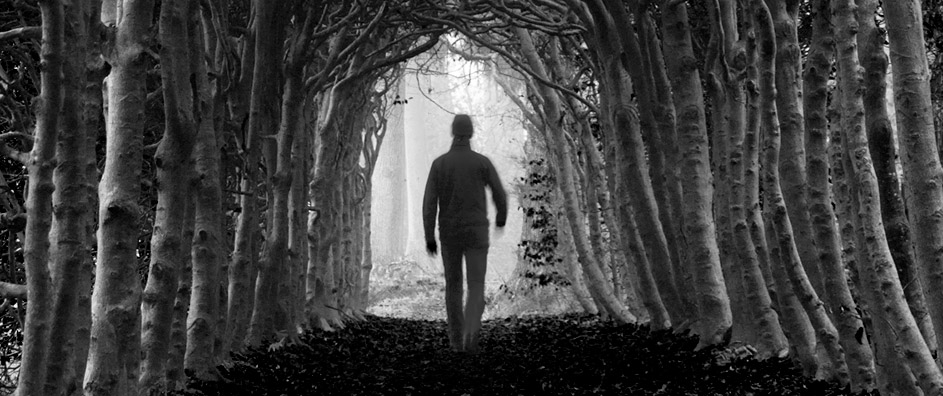The views expressed in our content reflect individual perspectives and do not represent the authoritative views of the Baha'i Faith.
The Baha’i writings affirm that we, in this second stage of our lives, should focus on preparation for our third birth, our entrance into the spiritual world.

Delmore Schwartz
Put more accurately, even as we gradually become accustomed to doing well in our human suit, we should gradually become more intent on preparing to disrobe and cast it aside. Because this is a grand illusion—that we are essentially physical beings—in truth, we are essentially spiritual beings associating for a brief span with physical reality by means of the intermediary of our “bear suit.”
The “bear suit” is an allusion to my most favorite poem about the body-soul duality, “The Heavy Bear” by Delmore Schwartz. His analogy between the body and a clumsy sort of circus bear gives such a fine insight into our life-long (at least during our physical life) struggle between our spiritual/intellectual aspirations and our sensual/physical drives. One part of the poem presents the idea axiomatically as follows:
That inescapable animal walks with me,
Has followed me since the black womb held,
Moves where I move, distorting my gesture,
A caricature, a swollen shadow,
A stupid clown of the spirit’s motive…
We can train the bear, restrain the bear, dress him in his “dress-suit,” but he will always screw up most of our vain attempts to be eloquent, elegant, and refined:
—The strutting show-off is terrified,
Dressed in his dress-suit, bulging his pants,
Trembles to think that his quivering meat
Must finally wince to nothing at all.
As regards to Swartz’s observation that he (we) will indeed “finally wince to nothing at all,” I now notice in the mirror that daily more and more of my own bear suit has winced, drooped, wrinkled, or gone grey.
In other words, in the same way (though unwittingly and through no inherent virtue or will) we developed the essential tools for this life while in our mother’s womb rather than simply enjoying the floating warmth, the reassuring heartbeat, and the sometimes audible coos outside. So it is now, that we are exhorted to recognize and develop, only this time through our own free will, those spiritual faculties and capacities that will enable us to be successful both in this life and, even more particularly, in that stage of our existence we endure after we and our “heavy bear” go our separate ways.
It is precisely in this context that Baha’u’llah states ironically—he frequently employs irony and humor to emphasize a point—that if our sole purpose and desire was be a success in this second stage of our life, if this is what we wanted to aspire to or look forward to, then we should have done it while we were living in the first stage of our existence in our mother’s womb. During that stage of our existence our physical life really represented the future. But as soon as we are born, Baha’u’llah points out, we start to recede from this life:
If ye be seekers after this life and the vanities thereof, ye should have sought them while ye were still enclosed in your mothers’ wombs, for at that time ye were continually approaching them, could ye but perceive it. Ye have, on the other hand, ever since ye were born and attained maturity, been all the while receding from the world and drawing closer to dust. Why, then, exhibit such greed in amassing the treasures of the earth, when your days are numbered and your chance is well-nigh lost? Will ye not, then, O heedless ones, shake off your slumber? – Baha’u’llah, Gleanings from the Writings of Baha’u’llah, p. 127.
We need not be believers in the Baha’i Faith to recognize the unassailable logic of this axiom—that as soon as we are born, we begin dying, that no matter what we aspire to become or to acquire, we are as ordinary human beings destined from the beginning to see ourselves depart this mortal coil and become bereft of all the material wealth and power and prestige we may have amassed.
True, we may leave behind a park bench or a road or a building that for a while may bear our name. Hopefully we will leave behind progeny who will recall us with affection and respect. Possibly we may live a life so spectacular it will be recounted for decades or centuries, whether we become a saint or a tyrant. But in time our life and our deeds will be forgotten on earth, and all our energy invested in trying to leave a lasting impression is futile in terms of physical reality, other than the infinite ripple of our spiritual actions on the lives of others.
Does it not make perfect sense, the Baha’i writings argue, that we should spend a decent amount of time in this life considering what will become of us afterward, especially if that life really is infinite? Indeed, does it not make sense that we should not delay in this focused reflection about our continuity beyond this life. After all, here I am doing it at sixty-eight, though obviously I have thought about all this before, and so have you. Heck, if we are honest about it, we’ve been aware of the elephant almost our entire lives!
So let us go then, you and I, on this fearless mental and spiritual excursion, this adventurous exploration. In fact, let us begin without delay since we both know that the old MTE may whack us down from behind well before we get to the next milestone.
















Comments
Sign in or create an account
Continue with Googleor